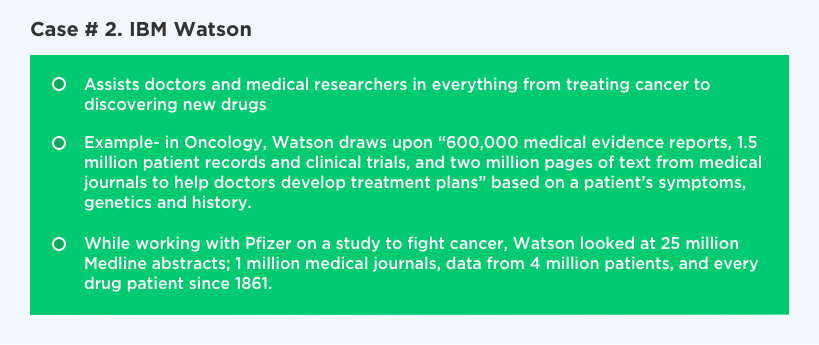How AI chatbots are changing healthcare?
AI-enabled chatbots can make the job of healthcare workers more efficient and empathetic.
A WHO study from 2013 revealed a global shortage in the number of healthcare workers. At the time, the figure stood at 7.2 million and is expected to rise to 12.9 million by 2035. The shortage is understandably a bigger concern in developing countries, lack of medical colleges and infrastructure being the major reason. But even in developed countries, the picture isn’t very pretty. This is the reason that mobile healthcare is gaining more traction than ever with each passing year. With more than 260,000 mHealth apps available now, the revolution has already started.
As the technology keeps getting better, so do the mobile solutions. So much so that almost all prominent healthcare industries have started using the advancements for improving their services and to be able to help more patients. AI chatbots are one of the most useful inventions done in the healthcare field in the recent years.
Chatbots are making healthcare workers more efficient
Healthcare workers do need all the help they can get. AI chatbots are being used to help the doctors with collecting data and even with the paperwork. Eliminating the need for engaging in paperwork, which sometimes takes up more than 70% of the doctor’s time, gives more time to the doctors and subsequently, they can attend to more patients. Getting the relevant case history whenever required makes it easier for the doctors to diagnose and treat their patients. On an average, a physician checks up on 7000 patients per year, with the help of chatbots, this number is already getting higher. The consultation is getting more accurate as loss of information like test results and patient charts is no more a concern. Also, for the patients and the doctors alike, using a chatbot is very simple. Being a server-side application, chatbots generally have a very basic UI. The evolution of technology around building a chatbot has also resulted in reducing the cost of chatbots.

Rise of chatbots as preferred solutions
All this information still does not answer a very important question. Are people comfortable with using chatbots for their health-related issues? In an April 2017 research, PWC found that 55 percent of those surveyed across Europe, the Middle East and Africa would be willing to use AI and robotics as part of their care, particularly for heart monitoring, customized fitness advice and taking and testing blood samples. The percentage is getting higher by the day as people are getting comfortable in interacting with bots for various purposes ranging from shopping to customer service. For companies, using chatbots for mundane and repetitive queries is cost-effective too and they get higher customer satisfaction for such queries owing to their machine-level efficiency(which is owing to the fact that they are machines).

Chatbots can help in affordable healthcare
Chatbots will also help in reducing the high cost of processing healthcare transactions. Currently, $250 billion is spent on processing around 30 billion healthcare transactions every year. Yet, 63% of referring physicians are dissatisfied with the current referral process due to lack of timeliness of information and inadequate referral letter content. Chatbots can help lower this number and eventually bring it to zero by eliminating loss of information as a factor in the referral process. Using AI will also result in lowering the processing cost, another giant leap towards affordable healthcare.
AI chatbots are being used to help the doctors with collecting data and even with the paperwork.
AI chatbots assist both doctors and patients
Chatbots can also help in getting the prescribed treatment executed properly. Research shows that 50% of the patients get out of the physician’s office not knowing what they were told and what they are supposed to do. This mismatch in medical knowledge itself costs $238 billion annually as the patients don’t take medical advice and their medicines on time. Using the chatbots, patients can get the information they want when they want it, and even get reminders for taking medicines when it is time.
Medical chatbots are fast becoming a part of the healthcare ecosystem due to all the advantages they provide. Some successful examples are the Babylon and IBM’s Watson.


How chatbots can assist, but not replace, healthcare workers
One of the biggest factors in resistance to chatbots usage for healthcare is the lack of human touch, the assurance that a patient gets when dealing directly with a healthcare worker is generally lacking in the no-nonsense, straight to the point AI solutions being implemented as a solution. Patients do not just seek consultation, but also empathy. With chatbots still some distance from passing the Turing test, which means the ability of a machine to mimic human intelligence, this is a big issue. Chatbots do have advantages like being able to provide super-fast processing and storing billions of records, yet, most of them cannot bring in the humane touch which the patients want and need.
So how do you pass the empathy factor?
Let’s understand that this is the stage one of AI-enabled chatbots for healthcare. The first round is over, it’s time we make them more empathetic from the next level of development. When you choose a trusted application development partner that understands empathy, you can create chatbots that truly mimic human interaction.
Vinfotech, one of the leading healthcare software development companies, with more than ten years of experience of developing healthcare software applications for hospitals, doctors, and healthcare providers, has now jumped in to solve this issue. We believe in design-oriented development and for us, and based on the experience we have gained working on our varied portfolio for the healthcare industry, we have empathy at the core of our healthcare software services. We have been developing AI healthcare bots for our clients and we can help you in building empathetic healthcare chatbots. Want to build a chatbot that your patients won’t hesitate in interacting with, give us a call.
- AI chatbots empower healthcare with patient data
- It minimizes the chances of errors
- Doctors have more time for consultations
- A good development partner can help build empathetic chatbots
About Vinfotech
Whether you are looking out to build a chatbot on top of your telehealth app as a smart symptom tracker, or take charge of improving overall healthcare experience of your hospital by connecting your staff, doctors and patients over a gamified online community integrated with various fitness wearables and medical devices, turn to Vinfotech.
Vinfotech is design-led healthcare ecosystem software provider for governments, healthcare organizations, care providers, medical ISVs, device manufacturers and software product companies with following expertise:
/ Healthcare online communities (for patients, hospitals & donors)
/ Telehealth
/ E-prescription
/ EMR
/ Coordinated care solutions
/ Chatbot, medical device and wearable integration
/ Any custom web/ mobile app















